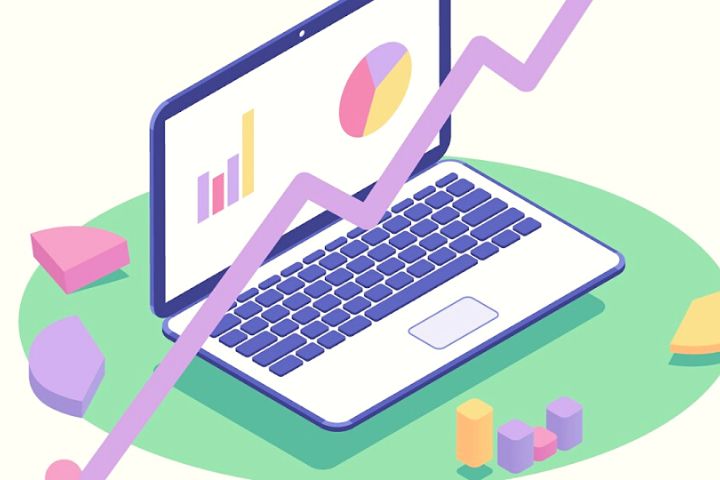How You Can Measure The Success Of Your Ecommerce Effectively

Since the pandemic, eCommerce has skyrocketed. Most of the brands that have a large presence in e-commerce are doing very well. This evolution can be known thanks to the e-commerce measurement metrics, which allow us to know how our online store is working and how we can improve it. We show you the most effective ways to measure the success of your eCommerce so that you can learn about the development of your online business and how to enhance it.
Table of Contents
Essential Metrics To Know The Success Of An eCommerce
There are many metrics when it comes to knowing the evolution of your eCommerce. In this case, we have selected the 20 that we consider most important and that can help you the most.
Traffic Per Device
An eCommerce can receive traffic from different devices, but the behavior of the client in each of them is different. The conversion rate, the number of purchases, and the bounce rate, among many other elements, will not be the same.
It is very important to know how eCommerce traffic is distributed in our business in order, from there, to make a comparison and know which are the ones that are generating the greatest response and, above all, which are the ones on which we should focus our attention the most.
Today, the conversion rate of the computer is usually (as a general rule, although not in all cases) higher than what we receive by mobile. But that does not mean that the mobile phone is not important because, in fact, it is the device from which the first visits to eCommerce take place, being from where the client makes the first contact.
Bounce Rate
The bounce rate refers to the number of people who visit our website and leave it without having made any type of interaction. To do this, this metric measures two user actions: the number of pages visited within a website and the time spent on them.
It is often believed that when a person spends more than 30 seconds on a website, they are no longer part of the bounce rate, but this is not the case. It doesn’t matter if the user spends 10 minutes reading about a product or service. If they don’t visit another page afterward, it will become part of the bounce rate.
Keeping this metric as low as possible is important because it will be an indication that users like your website and that you can increase positions in Google since the king of search engines take this variable into account.
Subscriptions To The Email List
For an eCommerce, the database is one of the most important elements, as it will allow you to retain customers. Getting subscribers to your email list is one of the best ways to increase that database. If it grows, you can increase billing thanks to a correct loyalty and nurturing strategy. Knowing the evolution of the growth of the database is a way to know if you are going in the right direction.
Email Open Rate
The rate of people who open our emails is a metric that allows us to know how reactive our database is. Many eCommerce think that the more emails they send, the better results they will obtain at this rate, but it is not like that. The key is to send emails at the right time and with valuable content that interests the public. The secret is to write a good subject and that it is aligned with the objective of the email and at the time of the buyer journey in which it is sent. To improve this rate, it is good to do A/B tests on a recurring basis.
Return On Ad Spend (ROAS)
It is interesting to carry out this metric for each of the sales channels in which your eCommerce has a presence, that is, for Facebook Ads, Google, Bing, etc… Once we obtain the result, we can compare those that are at the same level of the sales funnel to see how they are performing.
Conversion To Sale Rate
This rate indicates the number of visitors to our eCommerce who ended up making a purchase. It greatly influences the results of an eCommerce and the income, so the higher, the better. Currently, the average rate of conversion to the sale of an eCommerce in Spain is between 1% and 1.9%.
This metric is possibly one that we should pay more attention to.
Average Order Value
This metric tells us the average amount of money a customer spends on a transaction in your store. It is very significant because eCommerce (like any other form of business) has traffic acquisition costs, which will be influenced by the value of the average order. Therefore, if your business manages to generate an increased average order value, it means that the income is also higher and that your business has a greater margin to continue investing in growth.
Making a bundle of products, establishing a minimum order, or playing with related products are strategies that can help us increase this metric.
Average Lifetime Value
Control the number of orders that a customer or user generates in our eCommerce throughout its life cycle and the value of these orders. A high average lifetime value will allow us to invest more in traffic attraction strategies and finance our growth because it gives us the security that we will recover the investment.
Customer Acquisition Cost
This metric is achieved by dividing the cost of a specific action by the number of customers we have achieved thanks to it. The key here is that this customer acquisition cost is not higher than the average lifetime value (the previous metric). We must achieve a balance. In many cases, it is recommended that this acquisition cost be ⅓ of the average value of the lifetime because, in this way, we will have guaranteed benefits. However, this figure is somewhat indicative, and in each eCommerce, it may vary, as it will depend on the margins with which each one works.
Revenue By Traffic Source
In this case, for each of the traffic sources that we have already analyzed, thanks to the ROAS metric, we will have to look at the income they generate for us. In this way, we can promote those that receive higher income.
As a tip, we recommend not relying on just one or two traffic sources alone. It is better to diversify in case, for some reason, that source becomes more expensive, or any event occurs that causes our income to decrease.
Profit Margin
This metric, which is used to analyze the success of our eCommerce, has a lot to do with the costs at which we sell and the margin that we apply. For example, if my sales are high but the profit margin is small, the effort we put into each sale may not be entirely profitable. In contrast, it may be the case that, although my sales are moderate, my profit margin is large, making my business a profitable project.
Products Or Services With Better Results
Knowing this aspect will allow you to enhance what works best in my offer of products or services, but also to identify those things that are not generating sales to try to see what the reason is and find a solution.
Cart Abandonment Rate
We find eCommerce that have up to 70% abandonment, and even in the United States, there are cases that reach 90%. Monitoring, in this case, will be key to, from there, work and set up automation of cart abandonment emails that manage to reduce this rate.
Retention rate
To improve the results of our eCommerce, it is very interesting to know how many repeat customers, as this will affect many aspects such as, for example, the money invested in recruitment, which, if this rate is high, will be proof that it has been profitable.
The higher the retention rate, the more our eCommerce will grow. For this reason, it is advisable to do a weekly or monthly follow-up.
Abandon Rate
We should not confuse it with the bounce rate because, in this case, the consumer does interact with the content of our eCommerce and may look at more than one page, despite not ending up making a purchase. However, in both, it is interesting to minimize its expression.
Return And Refund Rate
When the return rate is very high, those sales that had been generated will be reduced. In addition, to this must be added the cost of managing the logistics of return and reimbursement. Therefore, it will also be interesting to monitor this metric and see how it can be improved.
Attendance Rate
It refers to the number of users who need assistance to generate a purchase. On many occasions, we can solve this with chatbots or with efficient customer service.
If this rate shoots up, it will be an indication that something is not working in the purchase process or that some information is not clear. Therefore, we should try to improve this process as much as possible.
Average Incident Resolution Time
This also influences when a customer ends up making a purchase. We have to make sure that we are quick when responding to any query because, in this way, we will transmit confidence to the client and increase our reputation.
Net Promoter Score
This famous metric tells us how likely our audience would recommend our brand to a family member or friend. It is important to have a high score, as it will be an indication not only that our customers are happy and may repeat, but also that we can receive new customers without having to invest in recruitment.







